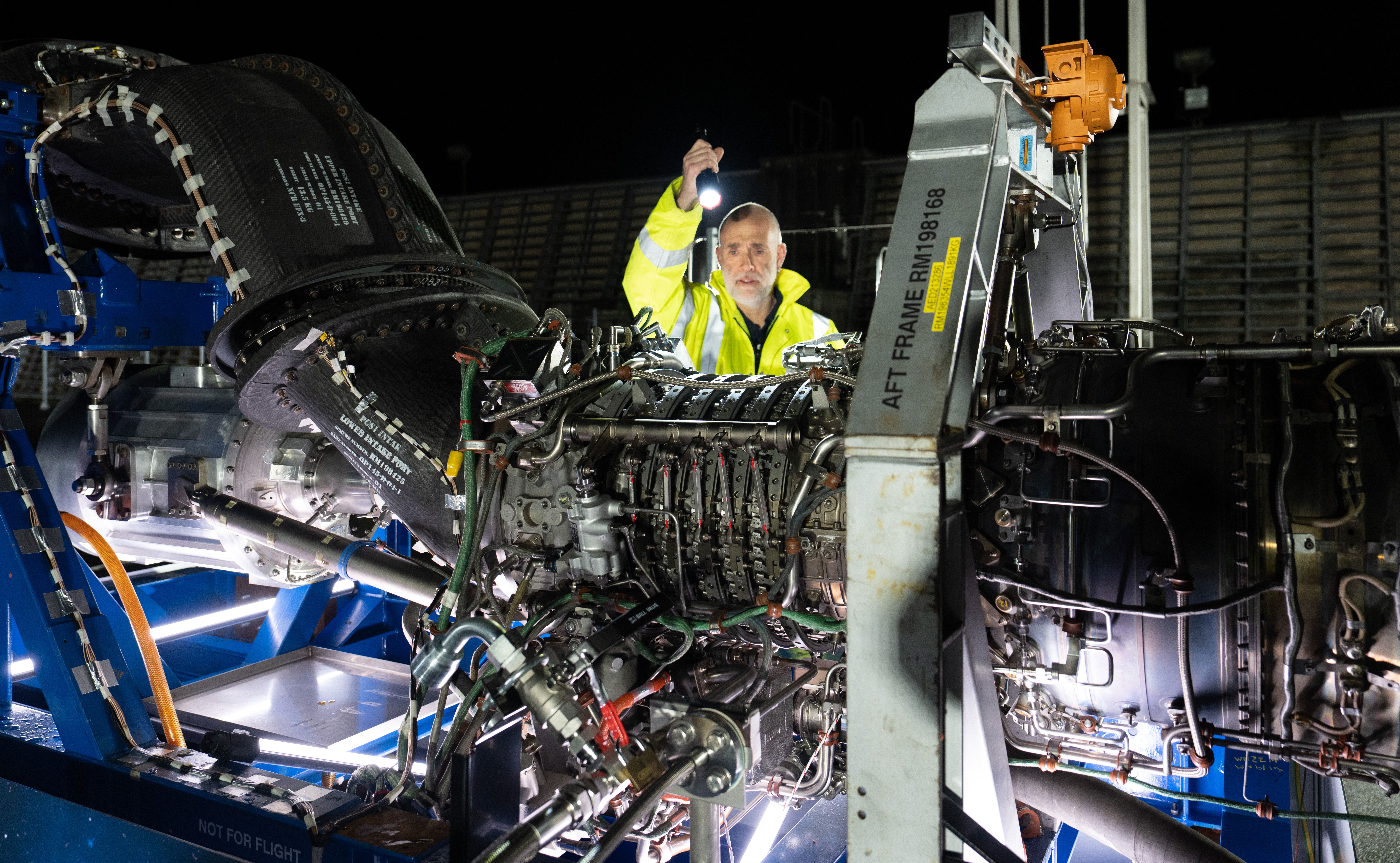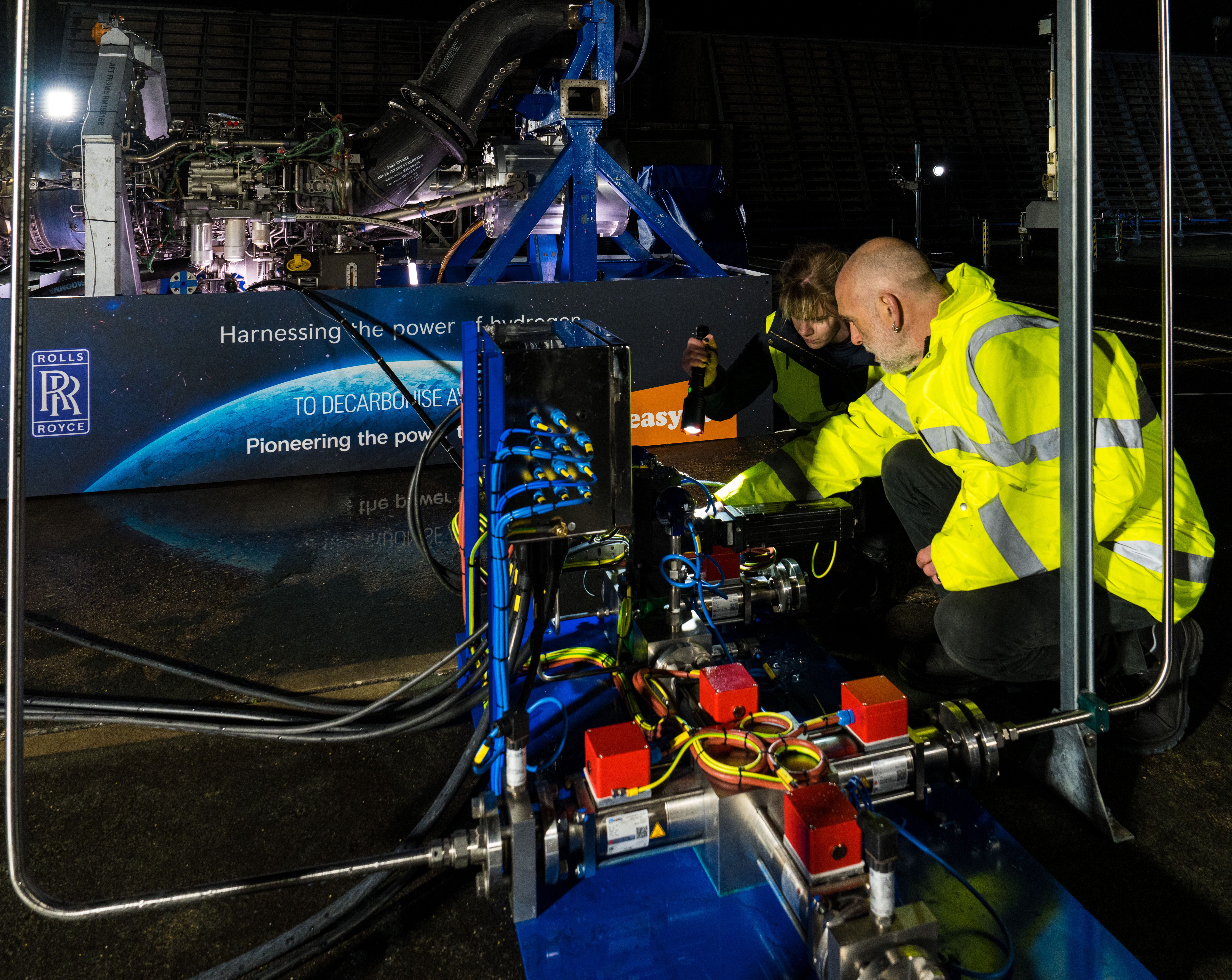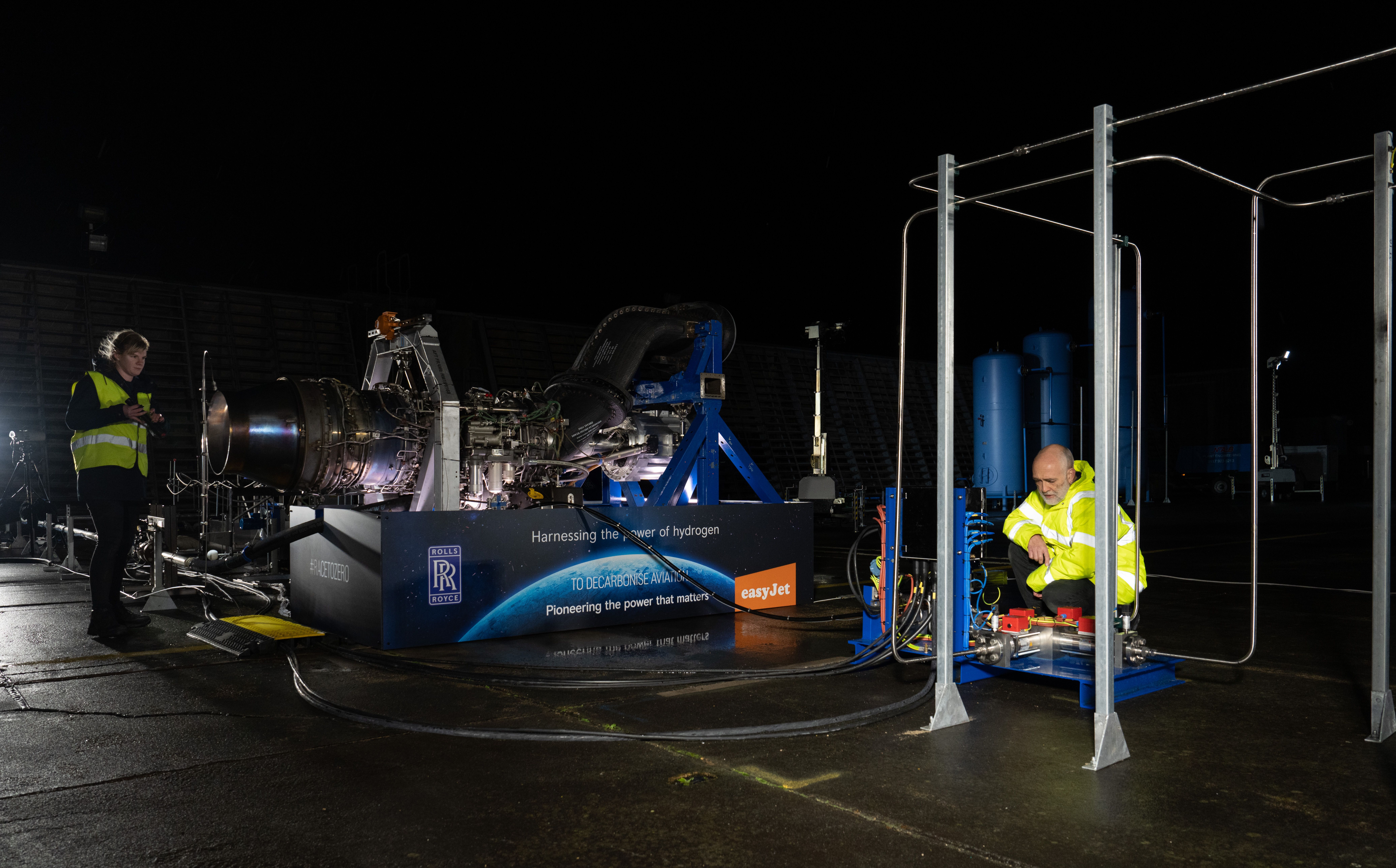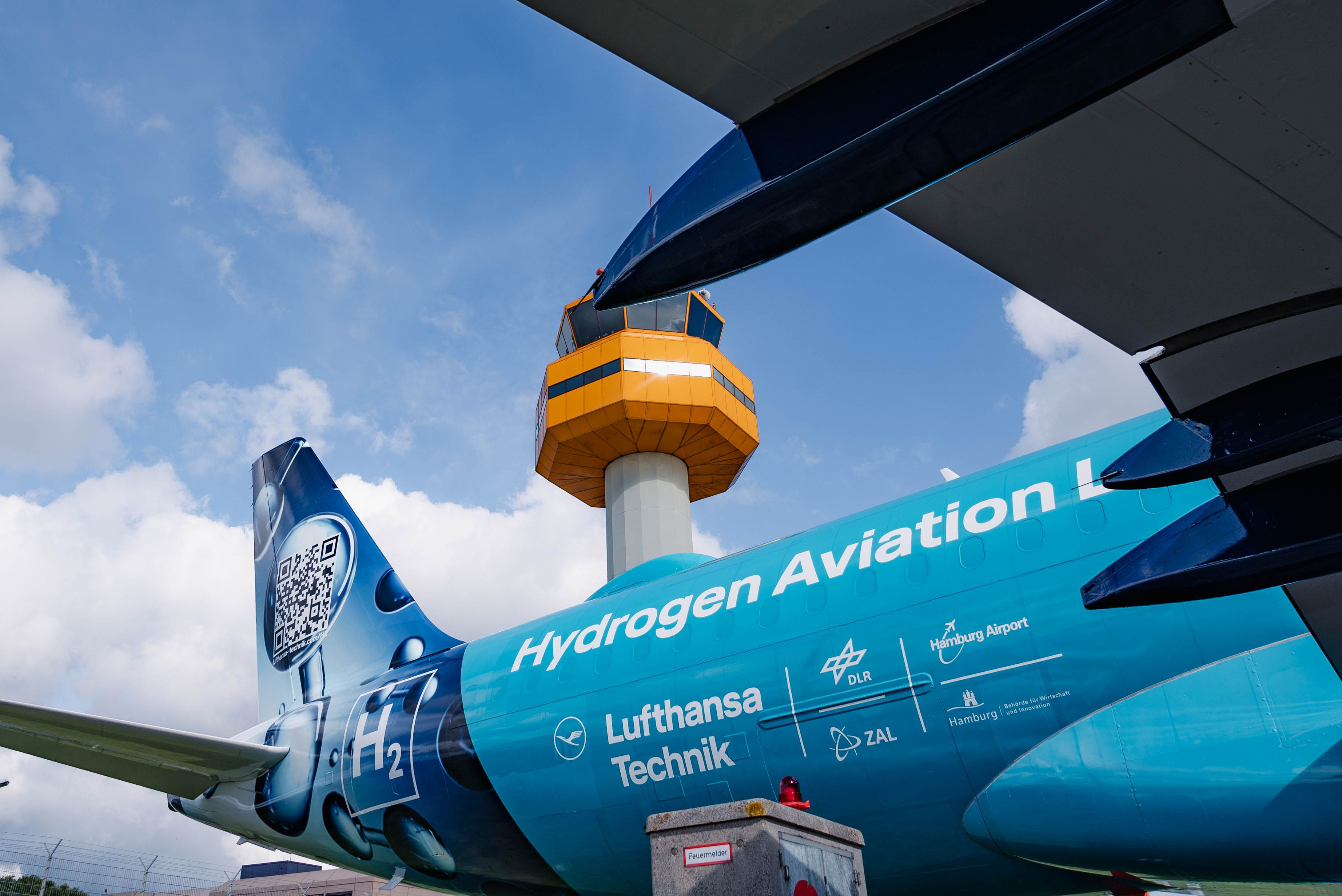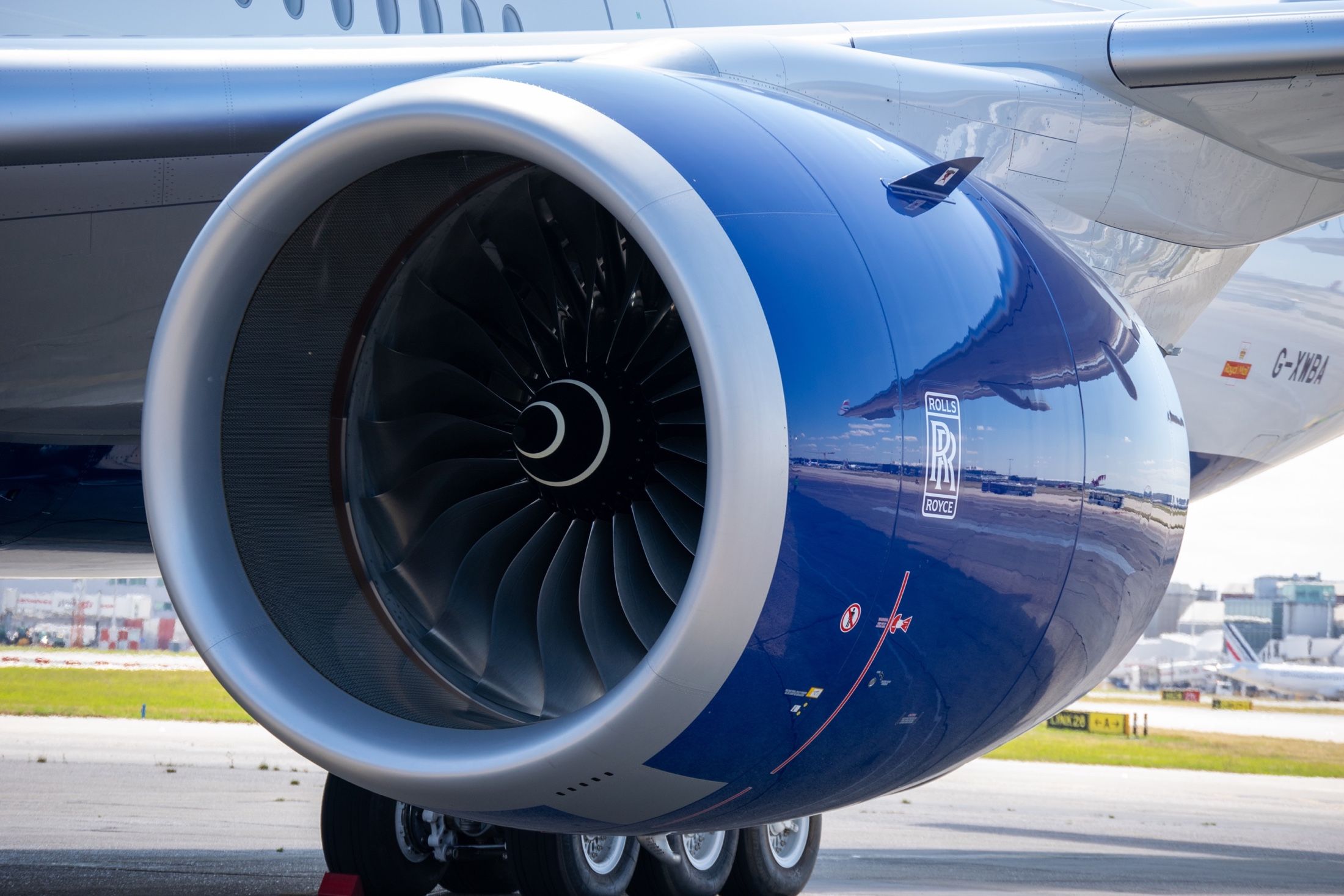In September, Rolls-Royce presented its AE 2100 test engine at an easyJet conference on the airline's roadmap to net zero aviation. Today the BBC has reported that Rolls-Royce, in partnership with easyJet, has commenced tests running the AE 2100 on hydrogen.
Rolls-Royce has entered into a multi-million-pound hydrogen engine and carbon removal project with easyJet. With hydrogen showing the most promise for zero-emission aviation, easyJet is also backing the Airbus ZEROe program. This program aims to have the first zero-emission commercial aircraft in service by 2023 using hydrogen technology.
A strong team is on the job
Rolls-Royce and easyJet are working together and will run tests on two Rolls-Royce engines, the AE 2100 turboprop and the Pearl 15 jet engine, used on the Bombardier Global Express 5500 and 6500 business aircraft. The immediate aim is to demonstrate that a jet engine can run and be controlled using hydrogen fuel.
Today's BBC report said that the tests have shown that a jet engine using hydrogen can be started up and run at low speed. Based on that, the initial ground test has succeeded, which is not surprising given the know-how and resources that Rolls-Royce brings to the task. Rolls-Royce director of aerospace technology Alan Newby said,
"Normally, we would run this thing on kerosene. Kerosene is a hydrocarbon and therefore produces carbon dioxide when it burns. The beauty of looking at a fuel like hydrogen is that it doesn't contain any carbon and, therefore, when it burns it produces no CO2."
Its partner, easyJet, also believes that hydrogen is the best way to get to net-zero aviation. The leading low-cost carrier found its own way to that conclusion, starting with exploring battery technology. EasyJet's chief operating officer, David Morgan, said:
"We looked at battery technology, and it was quite clear that the battery technology was probably not going to do it for the large commercial aircraft that we fly. We've come to the conclusion that hydrogen is a very exciting proposition for us."
A long road ahead for hydrogen
While sustainable aviation fuel (SAF) is already powering flights, its widespread adoption suffers from a lack of fuel and the necessary infrastructure to make it available. In the main, the aircraft and engines can operate using SAF, so the shift to its use lies outside the airline industry. However, for hydrogen-powered commercial aviation to work, not much of today's aviation ecosystem won't need to be reinvented or adapted.
To turn hydrogen into a liquid, it needs to be cooled to -253C and turned back into a gas to power the engine. Also, liquid hydrogen takes up around four times the space as the same volume of kerosine, so new fuel tanks and systems will be needed. Newby says it will require a "big change from the aircraft point of view."
"They're going to have a tank containing the hydrogen [and] you've got to keep it at this really cold temperature. Then there's the issue of how you feed it through the engine as well."
Want to know more about sustainability in aviation?
This is green all the way
By now, most of us have learned that hydrogen is not always a green alternative, with even the so-called blue hydrogen now under attack for its harmful properties. The hydrogen used in the Rolls-Royce AE 2100 is of the green variety produced at the European Marine Energy Centre in the Orkney Islands of Scotland. The report says it is made using an electric current to split water into its components, hydrogen and oxygen. The electricity needed is produced at the center using wave and wind power, making it a credible green fuel.
Starting the engine and running it using hydrogen may seem like a small step, but it marks a significant milestone on the path to net zero aviation by 2050.
Do you think this marks serious progress toward hydrogen-powered commercial aircraft?
Source: BBC

